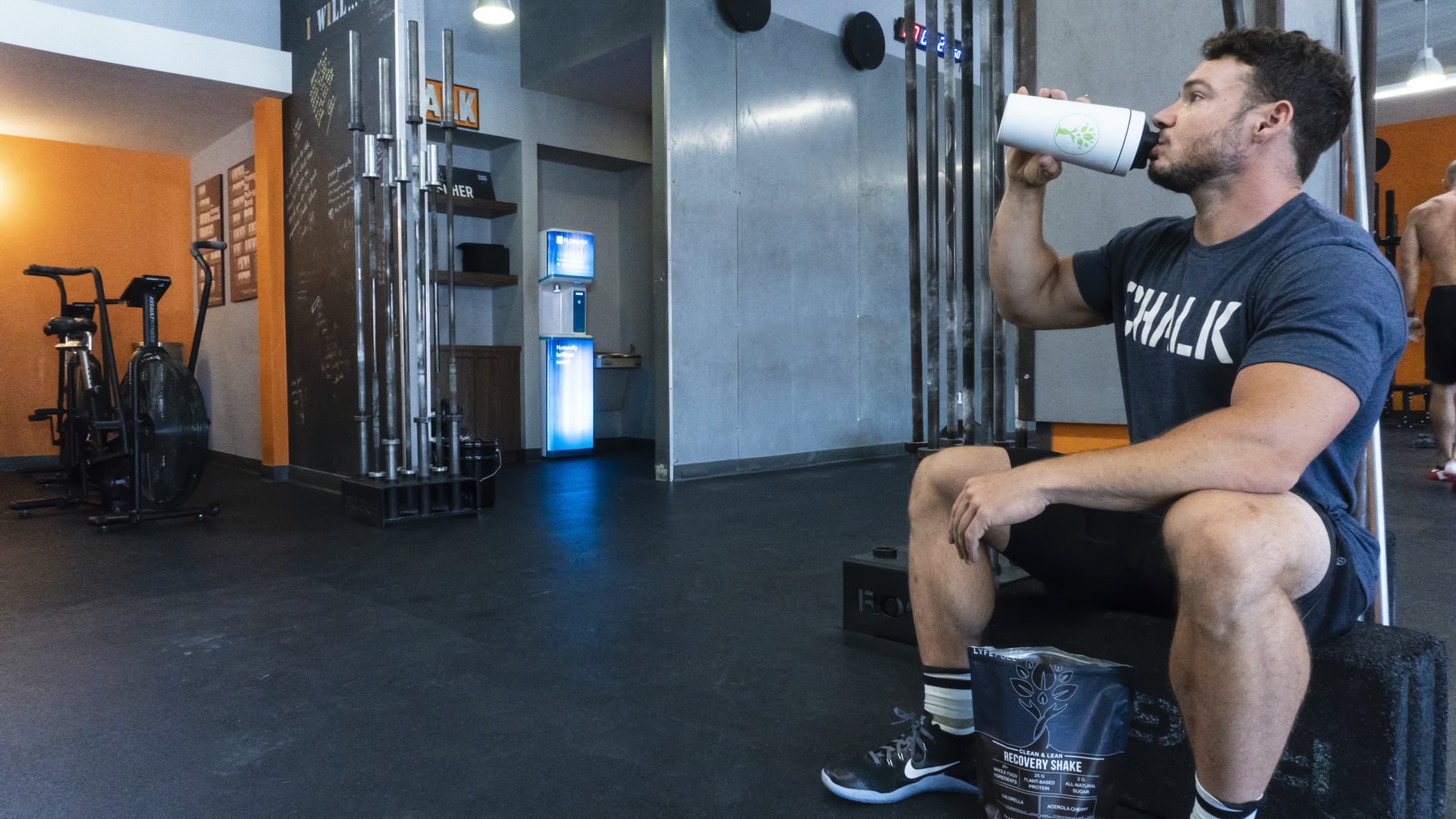
Modern marketing is force-feeding us protein ads. Everywhere we go that’s home to food and advertisements will include some sort of bold protein claim. Just this morning I was driving along my commute, forced to stare at the Pepsi Co. truck ahead of me. The ad painted across the rear of the truck was for Muscle Milk Pro Series with a manly 48 grams of “Powerful” Protein.
But how much protein do we really need? Or more specifically, how much protein do we need if we want to maximize muscle gains? Do those of us who struggle to gain weight benefit from a higher protein intake? Well, lucky for you and me, many studies have been conducted and have supported very reliable results.
What does protein do?
Every cell in our bodies contains protein.
Protein makes up the building blocks of our bodies, especially our muscles. Consuming protein triggers the stimuli of muscle protein synthesis (MPS). Protein Synthesis is the process our body undergoes to build new proteins; muscle protein synthesis is the same process but specifically for our muscles.
Protein is made up of amino acids, building blocks of the building blocks. When we eat food high in protein, we then digest the protein. During this digestion process, our bodies absorb the amino acids we just ate into our bloodstream. Our blood then transports these amino acids and allocates them throughout our bodies. Once the amino acids reach their destination, they become part of us (You are what you eat).
How much protein do we need?
Well, according to the Canadian Government website, “There is no [daily value] for protein in the Nutrition Facts table. This is because most people get enough protein, so it is not a health concern for Canadians who eat a mixed diet.”
That’s awfully vague.
It’s true, it is not a health concern as long as you’re consuming a well-balanced and healthy diet. But for hardgainers it is a gains concern, so we will dive a little deeper.
A recent article published in Nutrients states, “To maximize muscle protein accretion with resistance exercise, daily protein intakes should be ~1.6 g/kg/day and up to 2.2 g/kg/day.”
Many other studies support the same findings. 0.8g- 1.0g of protein per pound of bodyweight is optimal for hypertrophy.
This recommendation also applies to female athletes.
If you are tracking your calories you should already have a pretty accurate idea of how much protein you’re consuming daily. If you’re a big meat eater, you’re likely near your limit already. If not, protein shakes are your friend. A scoop of protein usually has approximately 20-25g of protein, so two shakes a day with two scoops each can easily bump up your intake by 40-50g. If that’s not enough, a third shake is totally fine and will cause no harm.
Lastly, there is no evidence suggesting that a hardgainer would benefit from consuming more protein than the 0.8-1g/lb recommendation.
Over-consuming protein.
There is almost zero benefit to consuming more than the recommended 0.8-1g/lb of body weight. Actually, many studies such as Lemon et al., or Hoffman et al. Suggest little benefit when consuming over 0.75g/lb.
There remains a stigma around protein consumption and bodybuilding that consuming supplementary protein is going to lead to a plethora of problems such as kidney damage or kidney stones.
I’ve personally been consuming protein supplements for years now, with no related health issues. I have many colleagues who can report the same too. If you are consuming too much protein, you’ll likely experience intestinal discomfort or indigestion.
However, there is some truth here. Studies show that a very high intake of a dietary protein supplement can cause kidney damage in individuals who are already suffering from kidney disease. However, these levels of protein intake are beyond reason and aren’t likely to ever be consumed by accident.
If you suspect that you have kidney damage and are experiencing symptoms such as decreased urine output, fluid retention, swollen legs, ankles, or feet, please see your health professional.
Protein sources.
Ok, so you need to consume 0.8-1g per lb of body weight, but from where?
Whole foods will always reign superior to supplements. If you skip a handful of almonds and instead go for a protein shake, that’s fine. The quality of protein likely isn’t any worse. However, you would be missing the benefit of other healthy nutrients as well as promoting a healthy dietary pattern, especially if you’re trying to gain weight.
Some food to consider if you want to pack in the protein:
Eggs
Lean meats- beef, lamb, pork
Poultry- chicken, turkey
Dairy- milk, cheese, yogurt
Beans
Legumes
Nuts
Fortified cereals
Key points.
At the end of the day, don’t worry too much. Get your protein in and lift some weights. The most important factor is that you are consistently stimulating MPS through hypertrophy training and protein consumption.
- Protein is in every cell in our bodies, and proteins are made of amino acids.
- 0.8-1g of protein per pound of body weight is the agreed-upon recommendation for muscle hypertrophy among scientists.
- This recommendation applies to both men and women.
- You may experience negative effects if you have existing kidney disease. See a doctor.
- It is difficult to over-consume protein to the point of danger if your kidneys are in good health.
- Always prioritize healthy whole foods over protein supplements.
